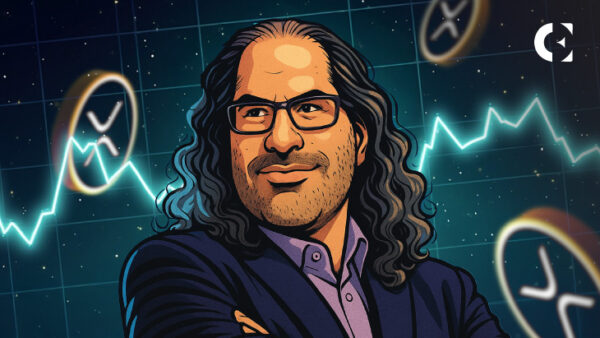- Ripple CTO plans to launch a high-performance XRPL server hub to support validators and applications.
- The server will feature enterprise-grade specs including an AMD 9950X CPU, 256GB RAM, and a 10GB unmetered connection.
- Reserved slots will support key XRPL infrastructure, while remaining capacity will be open to the public on a best-effort basis.
Ripple’s Chief Technology Officer, David Schwartz, announced on Saturday he is ‘independently’ deploying a new, high-performance server hub for the XRP Ledger (XRPL) to better support its validators and applications.
In a detailed post on X, Schwartz explained that the initiative is his personal project and not affiliated with Ripple, despite his role at the company. He noted that after a few years of not running his own XRPL infrastructure, he identified the need for a high-quality hub to serve XRPL ecosystem in a reliable and stable manner.
“This would be my server run by me with no official connection to Ripple other than that I’m a Ripple employee,” Schwartz stated.
Designed for Performance and Stability
The planned setup includes top-tier hardware meant to ensure maximum uptime:
- Processor: AMD 9950X
- Memory: 256GB RAM
- Storage: 2TB SATA SSD (boot) + 2x2TB NVMe SSDs in software RAID 0 (for NuDB)
- Connectivity: 10GB unmetered internet link
- Operating System: Ubuntu LTE
- Location: A datacenter in New York City
Schwartz noted that the server would function like a production environment, with high reliability. While he will gather data from it to understand network behavior, he assured the community no disruptive testing would occur.
Supporting the Core XRPL Ecosystem
The hub will reserve slots for UNL validators, other critical XRPL hubs, and applications. Importantly, Schwartz said that excess capacity will be available to the public on a “best-effort and space-available” basis. Only reserved slots will be prioritized for “important” infrastructure participants.
He also cautioned that no part of XRPL should rely entirely on one hub, reinforcing the principle of decentralization.
Related: Ripple CTO David Schwartz on XRP: User Outcomes More Key Than Strict Decentralization Purity
Schwartz ended his post by inviting feedback from the community, asking whether the initiative would be useful and if there are any flaws in the setup. The announcement has been well-received so far. Community members are praising the move as a positive step toward strengthening XRPL’s infrastructure.
With the surging interest in XRPL-based applications and tokenization, such independently run hubs could play a critical role in maintaining the network’s resilience and performance.
Disclaimer: The information presented in this article is for informational and educational purposes only. The article does not constitute financial advice or advice of any kind. Coin Edition is not responsible for any losses incurred as a result of the utilization of content, products, or services mentioned. Readers are advised to exercise caution before taking any action related to the company.







